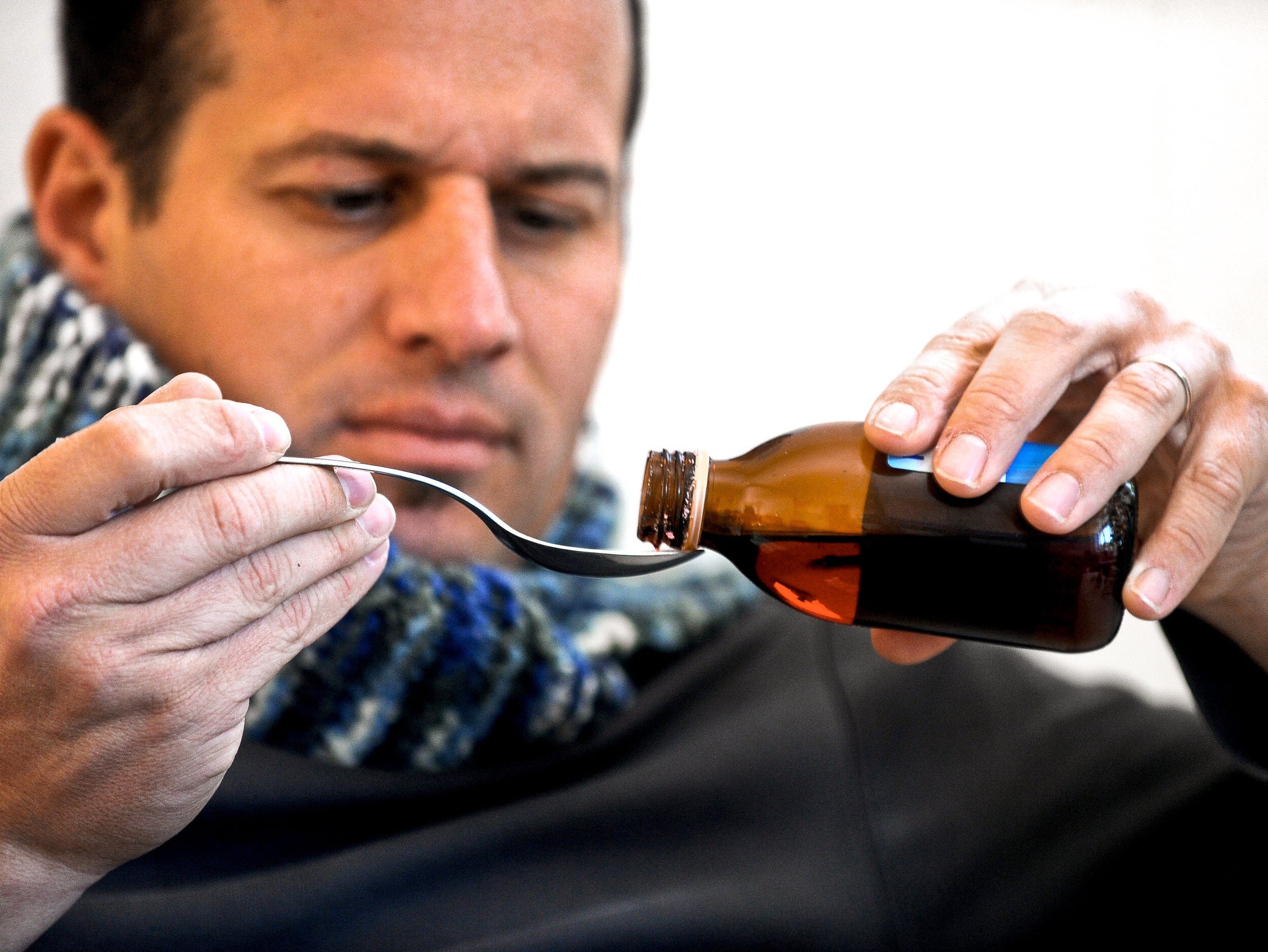No evidence cough medicines work with one in seven patients experiencing negative side effects, study finds
Coughs cost the UK economy nearly £1bn a year in lost productivity and sick days, with a further £100m bill for the NHS in seeing patients who will get better on their own

There is no evidence that medicines for persistent coughs have any benefit, and one in seven patients actually experience negative side effects, a study has found.
Swiss researchers comparing the medications against a placebo found no examples where they significantly sped up recovery or improved patient wellbeing in any of the other areas tested.
This is despite more than $4bn (£3.1bn) being spent around the world each year on over-the-counter cough medicines, with the researchers saying there has been little work to evaluate all the medications on the market.
Instead of prescribing, Dr Benjamin Speich and his fellow authors from the University of Basel, Switzerland, said GPs should reassure patients that their symptoms will get better on their own without medication.
“This review indicates that, despite being one of the most common causes for seeking medical advice in primary care, there is no beneficial treatment for subacute cough,” they said in the British Journal of General Practice.
“Considering the problem of overtreatment, spending time with the patient to explain the illness might be crucial for patient satisfaction.”
In the UK persistent cough costs the economy £979m a year in lost productivity and sick days, with a further £104m cost to the NHS from lost doctors appointments, despite the little they can do for most coughs.
For the study Dr Speich and his team only looked at clinical trials, which have randomly allocated patients to either receive a medication or a placebo treatment – therefore minimising the chance of any effects being a coincidence.
They considered any type of drug that had been tested in this format, though they chose to discount traditional Chinese medicines, and looked at patients who had their cough between three and eight weeks. Drugs that were put to the test included common asthma inhaler treatment salbutamol, and another containing codeine.
“No treatment option was associated with a clear benefit on cough recovery or other patient-relevant outcomes in any of the studies” after two weeks or one month, the authors write.
Additionally, 14 per cent of patients experienced unwanted negative side effects, including headache, nausea, chest pain and in some cases even a worsening of their cough.
The findings come after Public Health England recommend patients take honey and hot drinks for sore throats instead of asking their doctor for antibiotics.
Subscribe to Independent Premium to bookmark this article
Want to bookmark your favourite articles and stories to read or reference later? Start your Independent Premium subscription today.

Join our commenting forum
Join thought-provoking conversations, follow other Independent readers and see their replies